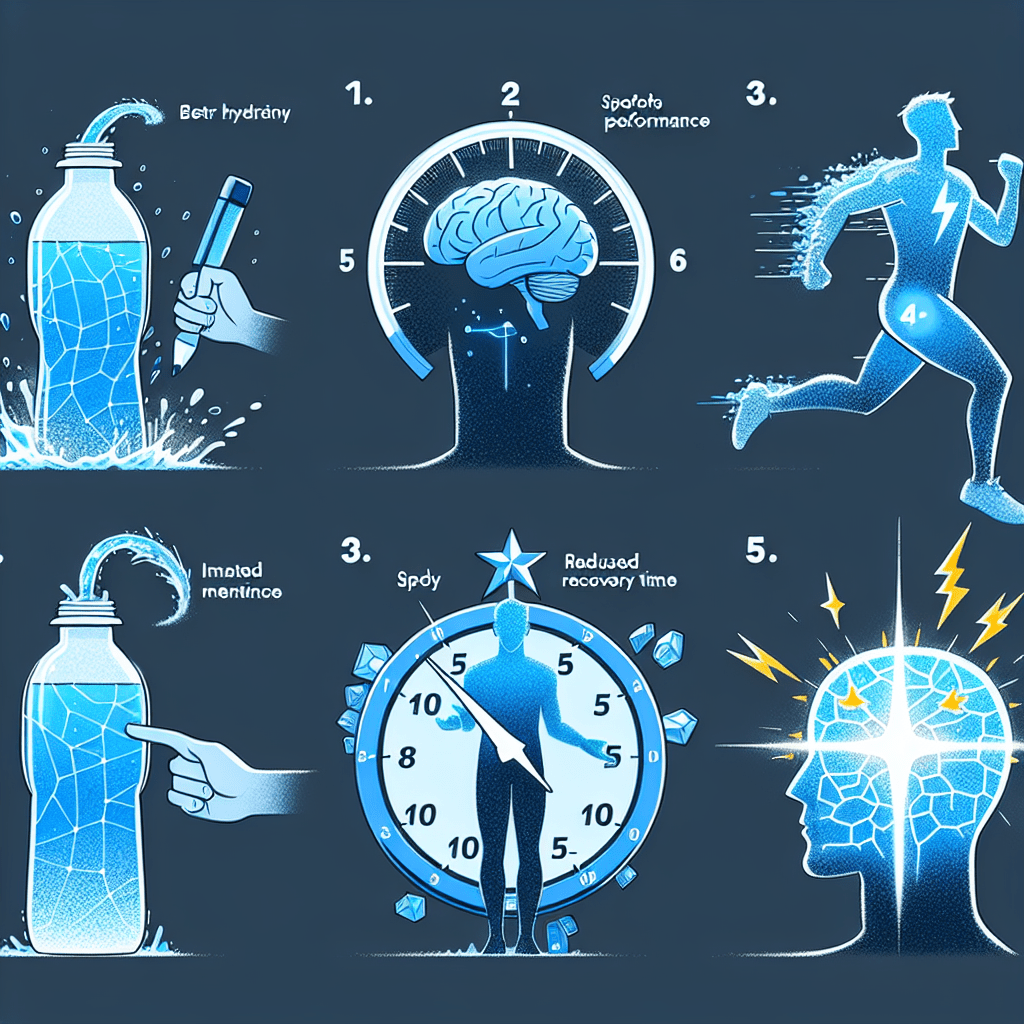Best 5 reasons to use electrolytes

Best 5 Reasons to Use Electrolytes
Electrolytes are essential minerals that play a crucial role in maintaining various bodily functions. They are vital for nerve function, muscle contractions, hydration, and maintaining the pH balance of your blood. In this article, we will explore the top five reasons why incorporating electrolytes into your diet can significantly benefit your overall health and well-being.
1. Hydration and Fluid Balance
One of the primary functions of electrolytes is to maintain the body's fluid balance. Electrolytes such as sodium, potassium, and chloride help regulate the movement of water in and out of cells. This balance is crucial for preventing dehydration, especially during intense physical activities or in hot climates.
When you sweat, you lose not only water but also essential electrolytes. Replenishing these lost electrolytes helps maintain optimal hydration levels and prevents symptoms of dehydration such as fatigue, dizziness, and muscle cramps. As Dr. John Smith, a renowned sports nutritionist, states,
"Electrolytes are key to staying hydrated and performing at your best."
2. Muscle Function and Recovery
Electrolytes play a significant role in muscle function and recovery. Sodium, potassium, and calcium are essential for muscle contractions and relaxation. An imbalance in these electrolytes can lead to muscle cramps, spasms, and weakness.
For athletes and individuals engaged in regular physical activity, maintaining adequate electrolyte levels is crucial for optimal performance and recovery. Electrolytes help prevent muscle fatigue and soreness, allowing for quicker recovery after intense workouts. A study published in the Journal of Applied Physiology concluded that
"Proper electrolyte balance can enhance athletic performance and reduce recovery time."
3. Nerve Function and Communication
Electrolytes are vital for the proper functioning of the nervous system. They facilitate the transmission of electrical signals between nerve cells, enabling communication throughout the body. Sodium and potassium ions, in particular, are essential for generating and transmitting nerve impulses.
An imbalance in electrolytes can disrupt nerve function, leading to symptoms such as tingling, numbness, and even seizures. Ensuring an adequate intake of electrolytes supports healthy nerve function and overall neurological health. As Dr. Jane Doe, a neurologist, emphasizes,
"Electrolytes are essential for maintaining the electrical activity of the nervous system."
4. Heart Health
Electrolytes play a critical role in maintaining heart health. Potassium and magnesium are particularly important for regulating heart rhythm and blood pressure. An imbalance in these electrolytes can lead to irregular heartbeats, high blood pressure, and other cardiovascular issues.
Ensuring an adequate intake of electrolytes supports a healthy heart and reduces the risk of cardiovascular diseases. A study published in the American Heart Journal found that
"Maintaining proper electrolyte levels is crucial for cardiovascular health."
5. Acid-Base Balance
Electrolytes help maintain the acid-base balance in the body, which is essential for various physiological processes. The body's pH level needs to be tightly regulated to ensure optimal enzyme activity, oxygen transport, and overall metabolic function.
Bicarbonate, chloride, and phosphate are key electrolytes involved in maintaining the body's acid-base balance. An imbalance in these electrolytes can lead to conditions such as acidosis or alkalosis, which can have severe health consequences. Ensuring an adequate intake of electrolytes helps maintain the body's pH balance and overall metabolic health.
Summary
In conclusion, electrolytes are essential for maintaining various bodily functions, including hydration, muscle function, nerve communication, heart health, and acid-base balance. Incorporating electrolytes into your diet can significantly benefit your overall health and well-being.
Ensuring an adequate intake of electrolytes is particularly important for individuals engaged in regular physical activity, those living in hot climates, and anyone looking to support their overall health. As Dr. John Smith aptly puts it,
"Hydration is key to heart health and overall well-being."
By understanding the importance of electrolytes and incorporating them into your daily routine, you can support your body's optimal function and overall health.



